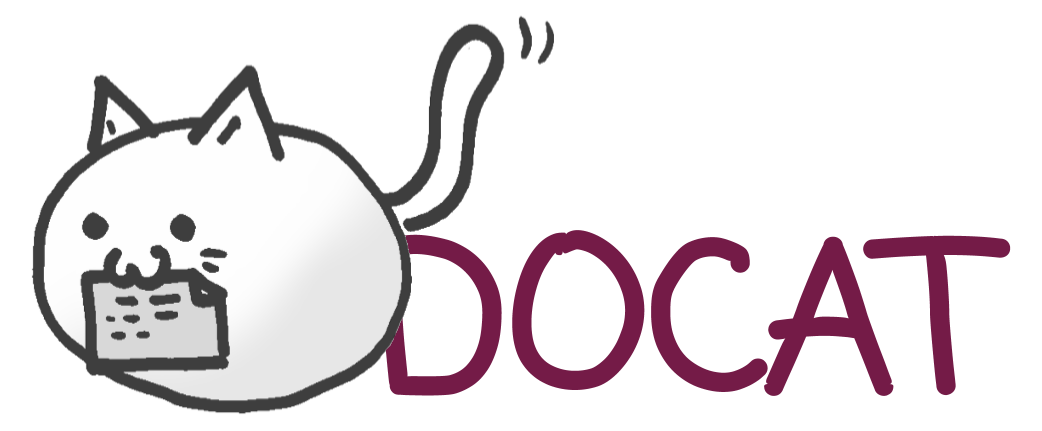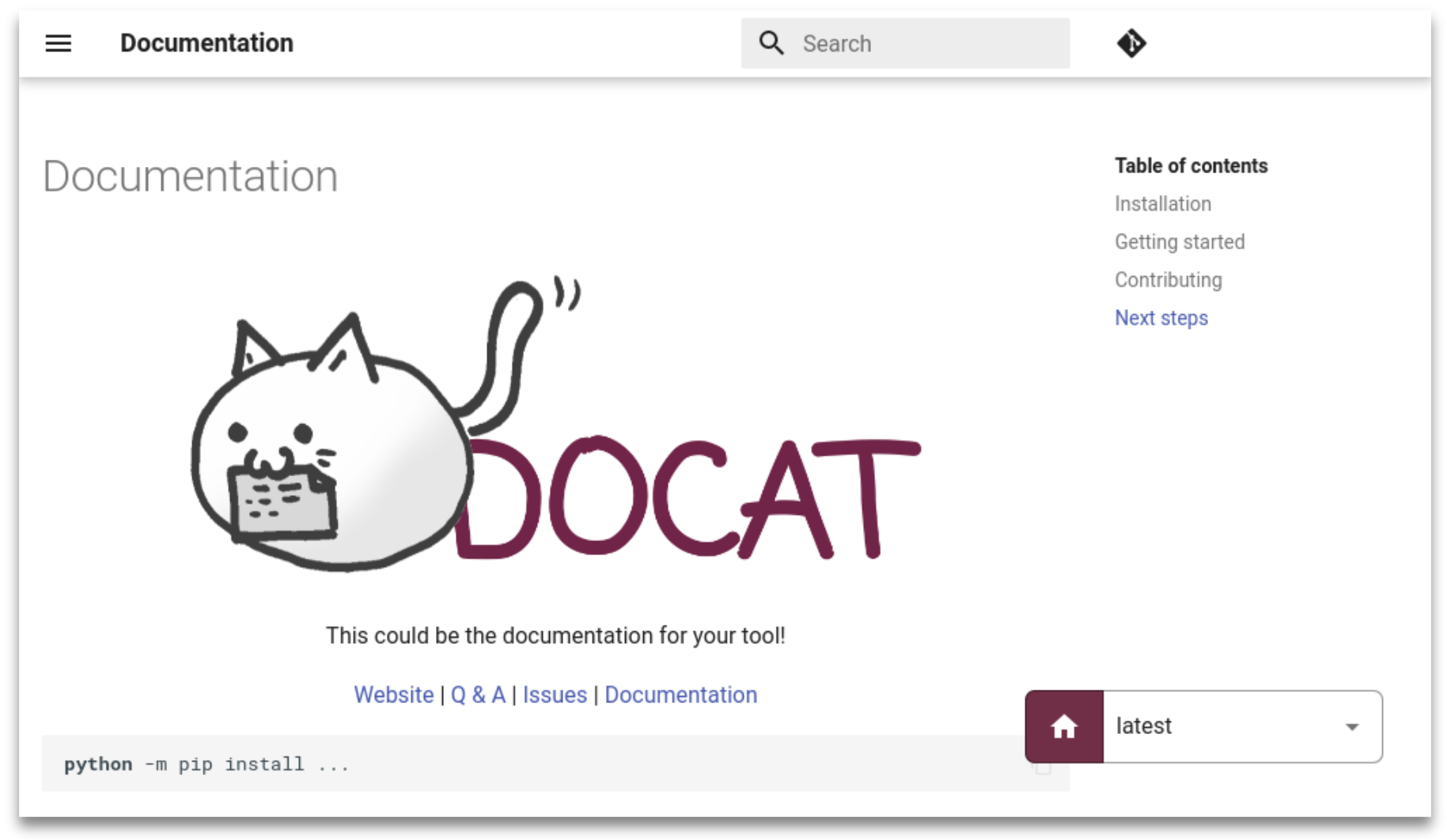Host your docs. Simple. Versioned. Fancy.
The simplest way is to build and run the docker container, you can optionally use volumes to persist state:
# run container in background and persist data (docs, nginx configs and tokens database)
# use 'ghcr.io/docat-org/docat:unstable' to get the latest changes
mkdir -p docat-run/doc
docker run \
--detach \
--volume $PWD/docat-run:/var/docat/ \
--publish 8000:80 \
ghcr.io/docat-org/docatGo to localhost:8000 to view your docat instance:
For local development, first configure and start the backend (inside the docat/ folder):
# create a folder for local development (uploading docs)
DEV_DOCAT_PATH="$(mktemp -d)"
# install dependencies
poetry install
# run the local development version
DOCAT_SERVE_FILES=1 DOCAT_STORAGE_PATH="$DEV_DOCAT_PATH" poetry run python -m docatAfter this you need to start the frontend (inside the web/ folder):
# install dependencies
yarn install --frozen-lockfile
# run the web app
yarn serveFor more advanced options, have a look at the backend and web docs.
The preferred way to push documentation to a docat server is using the docatl command line application:
docatl push --host http://localhost:8000 /path/to/your/docs PROJECT VERSIONThere are also docker images available for CI systems.
If you have static html documentation or use something like mkdocs, sphinx, ... to generate your documentation, you can push it to docat:
# create a zip of your docs
zip -r docs.zip /path/to/your-docs
# upload them to the docat server (replace PROJECT/VERSION with your projectname and the version of the docs)
curl -X POST -F "file=@docs.zip" http://localhost:8000/api/PROJECT/VERSIONWhen you have multiple versions you may want to tag some version as latest:
# tag the version VERSION of project PROJECT as latest
curl -X PUT http://localhost:8000/api/PROJECT/VERSION/tags/latestSame thing with docatl:
# tag the version VERSION of project PROJECT as latest
docatl tag --host http://localhost:8000 PROJECT VERSION latestIt is possible to configure some things after the fact.
- Create a
config.jsonfile - Mount it inside your docker container
--volume /path/to/config.json:/var/www/html/config.json
Supported config options:
- headerHTML
If you would like to send link to a specific version of the documentation without the option to change the version, you can do so by clicking on the Hide Controls button. This will hide the control buttons and change the link, which can then be copied as usual.

